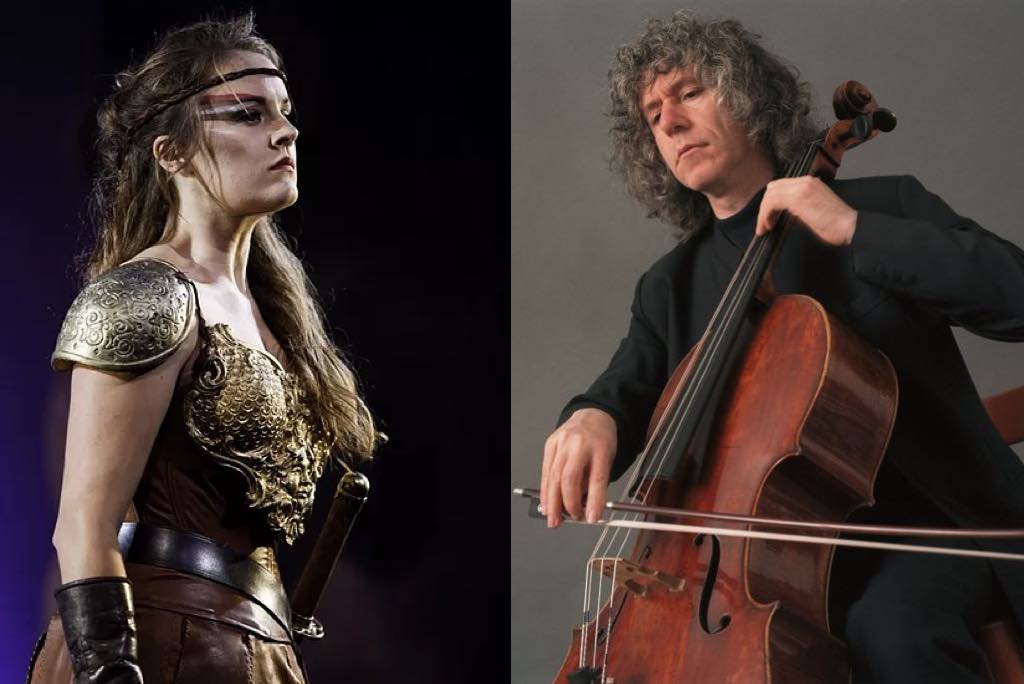
Poignantly, just as Britain is cutting its ties – and opportunities – with mainland Europe, a number of recordings of French classical music performed by British artists have just been released. British musicians have particular reason to regret the terrible consequences of Brexit, as the Conservative-led UK government chose not to sign a deal that would allow musicians and performers to travel more freely for their work. With the additional fees and paperwork now needed, European orchestras and concert promoters are tending not to hire British performers. It can only be detrimental to all creative artists on both sides of the Channel.
Let’s hope that the flourishing career of soprano Louise Alder will not be too badly affected. Already acclaimed as a very fine Lieder and opera singer – she has performed the role of Sophie in Richard Strauss’s Der Rosenkavalier at several international opera houses and has previously released a favorably reviewed recital disc of Strauss songs – Alder, together with her regular accompanist Joseph Middleton, now embraces the French song repertoire on a new album entitled Chère Nuit (Dear Night), named after one of the songs on the recording by the (new-to-me) composer Alfred Georges Bachelet (1864-1944).
The program choice on the album is imaginative, combining well-known repertoire by composers like Maurice Ravel, Claude Debussy, Francis Poulenc and Éric Satie with lesser-known material. It is particularly gratifying to hear a number of songs by women composers Cécile Chaminade (1857-1944) and Pauline Viardot-Garcia (1821-1910). Included also are three songs by the 22-year-old Olivier Messiaen (1908-92), which seem much closer to the sound world of Debussy than to Messiaen’s later very distinctive idiom.
Throughout, Alder sings with idiomatic flair – she has all the high notes that one would expect from someone who has made Strauss’s Sophie her own – but her middle range also has a depth and richness that makes one wonder whether we will see her in a role like the Marschallin in Der Rosenkavalier before too long.
In performing Ravel’s song cycle Schéhérazade, Alder pits herself against many great French singers who have recorded the work (Régine Crespin’s recording has always been the benchmark for me), and she emerges with enormous credit. Her sumptuous interpretation of the great first song, “Asie,” exploits her vocal talents to the full, and, if her voluptuous performance of the third song, “L’Indifférent,” contrasts markedly with the coolness of Crespin’s interpretation, it shows that she is not afraid to put her own mark on the songs.
Although the acoustics on the recording is at times overly resonant, Joseph Middleton proves himself throughout to be the most sensitive of musical partners, and it is a collaboration that is sure to continue to bear musical fruit in the future.
Another new recording of French music by a British musician is a recital by cellist Steven Isserlis, accompanied by Canadian pianist Connie Shih. I recently reviewed the album Proust, le Concert Retrouvé, which reconstructed a musical evening organized by Marcel Proust. On Isserlis’s disc, Music from Proust’s Salons, he has similarly drawn inspiration from the author, albeit in a rather more impressionistic way: he plays music by composers known and admired by Proust but makes no attempt to replicate any specific program.
The album is dominated by a gorgeous rendition of two sonatas: Camille Saint-Saëns’ Cello Sonata No. 1, which contains both the final version of the three-movement piece and the original last movement, which the composer’s overbearing mother forced him to change, and the version for cello of César Franck’s exquisite Violin Sonata.
Isserlis’s long experience in performing chamber music shows in both works, and he and Shih combine convincingly to give fully committed interpretations. Franck approved of the cello version of his sonata, and it is certainly a treat to hear the cello’s darker tones in the music, even if Isserlis opts for some dangerously slow tempi in the opening movement.
Elsewhere on the recording, the two musicians play music by Reynaldo Hahn (the hauntingly beautiful “Variations Chantantes sur un Air Ancien”), two pieces by Gabriel Fauré (including the famous “Élégie”), a somewhat lightweight and brief movement from the song composer Henri Duparc’s Cello Sonata, and a radiantly performed arrangement by Isserlis of music from the cantata “La Vision de la Reine” by the Franco-Irish composer Augusta Holmès, with whom both Saint-Saëns and Franck were reputedly smitten, leading to strained relations between the two men.
A number of the same composers from the Alder and Isserlis albums, including Chaminade, Saint-Saëns and Debussy, make a welcome appearance on Belle Époque: French Music for Wind, the debut album by the British-based wind ensemble Orsino. Together with pianist Pavel Kolesnikov, the five wind players, all renowned soloists in their own right, show with conviction that, musically at least, there is hope for continued Franco-British harmony in the future.
Nick Hammond’s latest book, The Powers of Sound and Song in Early Modern Paris, is now available in paperback and as an e-book here and from online vendors.
Favorite